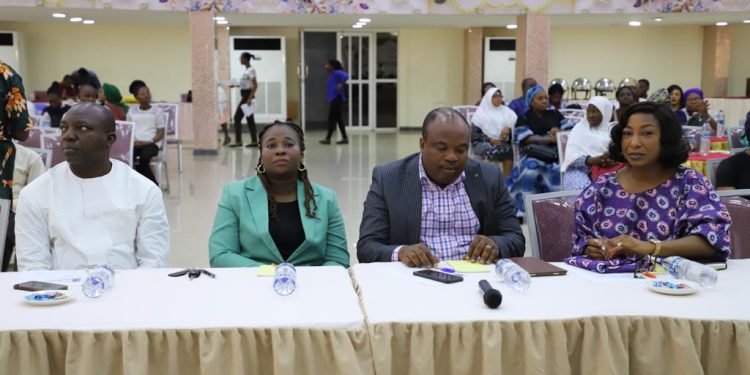Over 10,000 adolescent girls in Ogun State have been economically empowered with vocational skills and equipped with tools to participate in the workforce by the Society for Family Health through its A360 intervention project.
This was disclosed at the close-out dissemination meeting of the SFH A360 project. Society for Family Health is a foremost Nigerian organisation with a mission to improve health outcomes by ensuring communities have access to affordable, quality, and gender-sensitive health services and commodities.
The A360 project implemented through the 9ja Girls’ model, a trusted response that empowers and supports girls and their communities to deal with adolescent sexual and reproductive health through social and economic development that centres on supporting adolescent girls’ knowledge, skills, and confidence to aspire and achieve their goals for their lives.
According to the Project Director, Roselyn Odeh, the approach is premised on SFH’s appreciation of the empowerment of girls as essential for achieving human capital and fostering social and economic development.
“SFH understands that a comprehensive approach to this empowerment involves providing girls with access to contraceptive options, quality health education, and skills-building opportunities and continues to strive to support Government stakeholders capitalise on these intersections.
“To date, SFH has supported 10,581 adolescent girls with vocational skills, equipped them with the tools to participate in the workforce and make informed decisions thereby improving their human capital outcomes. Additionally, 101,070 adolescent girls have benefitted from comprehensive contraceptive counselling resulting in 77,828 Girls taking up a contraceptive of their choice in partnership with Ogun State Primary Health Care Board,” Odeh said.
The Project Director also highlighted the fact that making the right reproductive health decisions and contraceptive adoption for adolescents and young girls is strongly linked to their socio-economic and general wellbeing.
She added that it enhances their agency and the capacity to demand, claim and uphold their sexual reproductive health rights.
“This finding was part of the outcome of its integrated Adolescent 360 project that demonstrated the benefits of implementing a comprehensive adolescent reproductive health programme with economic empowerment as an integral part of its approach.
“Access and uptake of reproductive health services remains a challenge for adolescent girls and young women in Nigeria at the personal, family, and societal levels with religious, cultural and socio-economic considerations and barriers often undermining the need and access to these services.
“Building on the momentum of an initial phase of the project funded by the Bill and Melinda Gates Foundation from 2017-2022. The current phase of the A360 programme funded by the Hightide Foundation, offers technical support and funding to the Ogun State Government through its Primary Healthcare Board to facilitate the expansion and implementation of A360’s high-impact solutions for Adolescent Sexual Reproductive Health across basic healthcare facilities distributed across the 20 local government areas in the state.
“It uses a life mapping exercise and vocational training as an entry point for conversations about the role contraception can play in achieving their life goals. The purpose is to sustain developmental improvements towards holistic outcomes for adolescent girls. The goal of the project is to break down barriers to access and voluntary use of modern contraceptives by adolescent girls 15 – 19 years by increasing the modern contraceptive prevalence rate (mCPR) and improving the sexual reproductive health of adolescents.
“To broaden benefits and consolidate the gains of the intervention, the project tasks the Ogun state government to review downwards the age limit for beneficiaries of the economic empowerment from 18 to at least 15 years.
“The state should also Strengthen Inter-Agency collaboration; between the social development and fiscal resource management agencies; Health and Education, Women Affairs, Youth Development, Economic Empowerment Initiatives and Finance to collectively define the pathway and financing for integrating economic strengthening on adolescent sexual reproductive health as a sustainable pathway to adolescent health development. A state-wide scale up of youth-friendly service provision beyond the current BHCPF supported facilities where the implementation is ongoing to all its Primary Health Care facilities will provide the infrastructure to deliver on this,” she explained.
Odeh urged the Ogun State Ministry of Health to consider developing an alternate resource mobilisation strategy for its ASRH aspirations that takes into consideration the economic outlay of the state and the potential for Corporate Social Responsibility (CSR).
She stressed that SFH commits to continue to provide technical support to the Ogun State Government in delivering on its ASRH aspirations.

